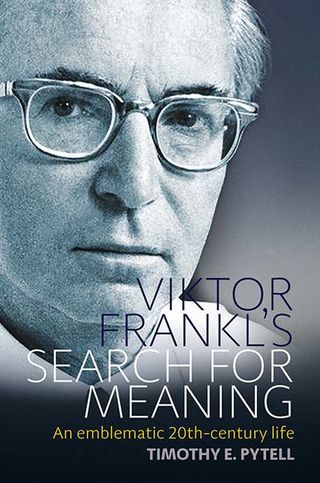Psychology
Why Viktor Frankl Still Matters
...75 years after the liberation of Auschwitz
Posted April 4, 2020

Berghahn Books has recently released my biography Viktor Frankl’s Search for Meaning in paperback. Therefore, I thought I might take the opportunity to argue why Frankl still matters. The book is subtitled An Emblematic 20th Century Life, and that it is.
Viktor Frankl came of age in “Red Vienna” that occurred after the Great War and had relationships with Freud and Adler before turning towards existentialism. As one reviewer remarked, Frankl’s story offers a good introduction to the history of psychology. And like his friend Heidegger, Frankl had an ambiguous relationship—and intellectual interest in—the rise of fascism. As one reviewer stated, “this is a great case study in the intellectual history of the twentieth century and the impact of the Holocaust therein.”
The Holocaust certainly loomed large in both Frankl and his generation’s experience. No doubt all stories of Holocaust survival are remarkable and worthy of note. But Frankl’s story of survival is beset with what one reviewer described as “contorted circumstances” and offers a profound lens into both strategies for survival, and how survivors worked through and came to terms with their survival.
The reviewer in the United States Holocaust Memorial Museum’s journal—Holocaust and Genocide Studies—insightfully remarked: “Pytell’s perceptive study should be read by any student of the Holocaust and any student of the postwar history of humanistic psychology.” Indeed, I wrote the book for students that aspire to have a deeper understanding of 20th-century European history, but also American history, given Frankl’s impact on American humanistic psychology.
Frankl’s influence in American cultural life also goes on unabated. His testimony is a major focus of discussion on the internet. Recently, Straight up Films has bought the rights to make a movie based on the book. Also, this Spring Beacon Press is translating and publishing the lecture series given by Frankl immediately after the war titled "Nevertheless Say Yes to Life." As the title suggests, the lectures repeat Frankl’s inspiring and heroic tale of surviving the Holocaust.
Over the years many American “Self Help” experts have promoted Frankl’s testimony. Tony Robbins considers it a must-read. Stephen Covey, the author of the widely popular The 7 Habits of Highly Successful People suggested Frankl had more power than the Nazis, because although his Nazi captors “had more liberty, more options to choose from in their environment” Frankl “had more freedom, more internal power to exercise his options.” For Holocaust specialists that view the camps as a system of pervasive sadistic terror, this reads like fiction. Interestingly, it was Covey who initiated the responsibility foundation, which aspires to fulfill Frankl’s vision that a 300-foot Statue of Responsibility is needed on the West coast to complement the Statue of Liberty. The goal is to build the monument by 2023.
In January 2020, the renowned conservative radio host Dennis Prager was interviewed for an inaugural book club by Micheal Knowles. The subject is Frankl’s testimony, which Prager claims is second to the bible as the most influential in his life. The interview reveals Prager has a deep admiration and fascination with Frankl that began with his reading of Man’s Search for Meaning in high school. Prager even identifies with Frankl, especially Frankl’s claim that the survivor has nothing left to fear other than his God—Prager states, “I am that guy.”
The interview makes clear that Prager admired Frankl for his testimony and survival of Auschwitz. But the interview also reveals Prager doesn’t “know” Frankl beyond his testimony. He never met Frankl. He also states Frankl was 24 when he wrote his testimony when “most people think he was middle-aged.” Frankl was born in 1905, so in 1946 he was middle age. Perhaps most importantly, Frankl was never “in” Auschwitz. He was held in “depot” for three days outside of Auschwitz before being transferred to Dachau, where he was numbered and spent five trying months.
I have no doubt Frankl’s afterlife will continue to inspire millions—as well he should. But I believe Frankl’s import lies elsewhere. As I conclude, Frankl lived a fascinating emblematic 20th-century life. However, by reflecting on the detailed, biographical backstory along with a full exposition of the social and intellectual currents to Frankl’s search for meaning, we deepen our comprehension of not only Frankl’s tragedy but of the 20th century—and beyond.


